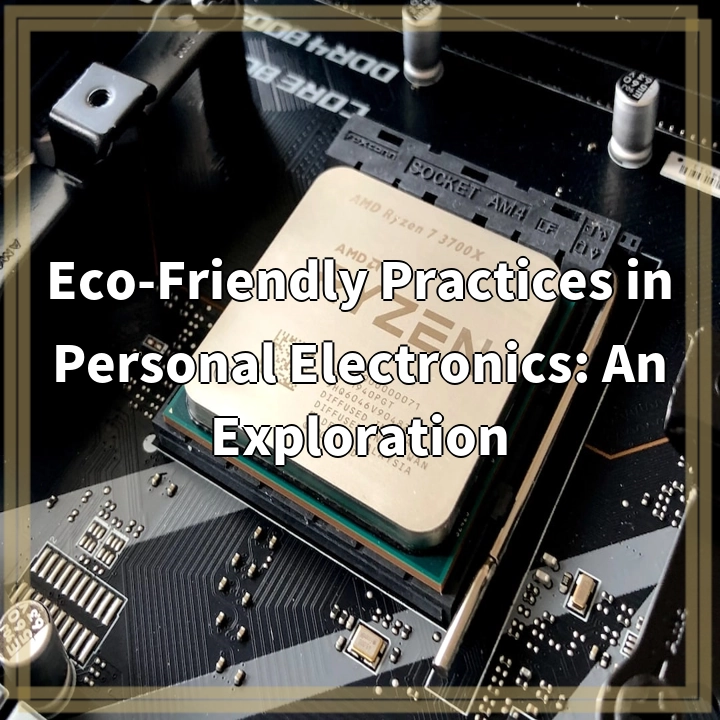
What it is:
Eco-friendly practices in personal electronics refer to sustainable actions and choices made by individuals to minimize the environmental impact of their electronic devices. This includes considering the entire life cycle of personal electronics, from production and use to disposal and recycling.
Real-World Problems:
While personal electronics bring convenience and technological advancements, they also contribute to significant environmental issues. Some of the key real-world problems associated with personal electronics include:
1. Electronic Waste:
The disposal of electronic devices poses a significant challenge. Many devices contain harmful substances such as lead, mercury, and cadmium, which can leach into the soil and water when improperly disposed of. Electronic waste also contributes to the growing problem of landfills and incineration, which emit greenhouse gases and pollutants.
2. Energy Consumption:
Personal electronics require a substantial amount of energy during their production, use, and charging. This leads to increased greenhouse gas emissions and puts pressure on energy resources. Additionally, leaving devices plugged in or in standby mode contributes to unnecessary energy consumption.
3. Planned Obsolescence:
Many personal electronics are designed with a limited lifespan, leading to frequent upgrades and replacements. This results in a significant waste of resources, energy, and materials. Planned obsolescence also encourages a throwaway culture and inhibits the development of more sustainable and durable products.
4. Fair Trade and Workers’ Rights:
The production of personal electronics often involves global supply chains where labor rights and fair wages are not always prioritized. Workers may face hazardous conditions, long hours, and low pay. Ensuring fair trade and worker protections throughout the supply chain is essential for sustainable personal electronics.

Solutions for Eco-Friendly Practices in Personal Electronics:
Implementing eco-friendly practices in personal electronics can contribute to a more sustainable future. Here are some solutions to the real-world problems associated with personal electronics:
1. Responsible Disposal and Recycling:
Encourage the proper disposal and recycling of electronic devices through designated e-waste collection centers or programs. This ensures that hazardous materials are handled safely and that valuable components can be extracted and reused.
2. Energy Efficiency:
Opt for energy-efficient devices that bear labels such as ENERGY STAR. Additionally, remember to unplug chargers and devices when not in use, as they continue to consume energy in standby mode.
3. Extending Device Lifespan:
Instead of opting for frequent upgrades, make the most of your existing devices. Take good care of them, perform regular maintenance, and consider repair options when issues arise. This helps reduce waste and prolongs the lifespan of personal electronics.
4. Supporting Sustainable Brands:
Research and choose brands that prioritize sustainability, fair trade, and workers’ rights. Look for certifications like Fairtrade or B Corporation to ensure ethical and responsible manufacturing practices.
5. Repairability and Modularity:
Support products that are designed to be easily repairable and upgraded. Look for devices that have replaceable parts, modular design, and readily available repair resources to minimize waste and extend the life cycle of personal electronics.















